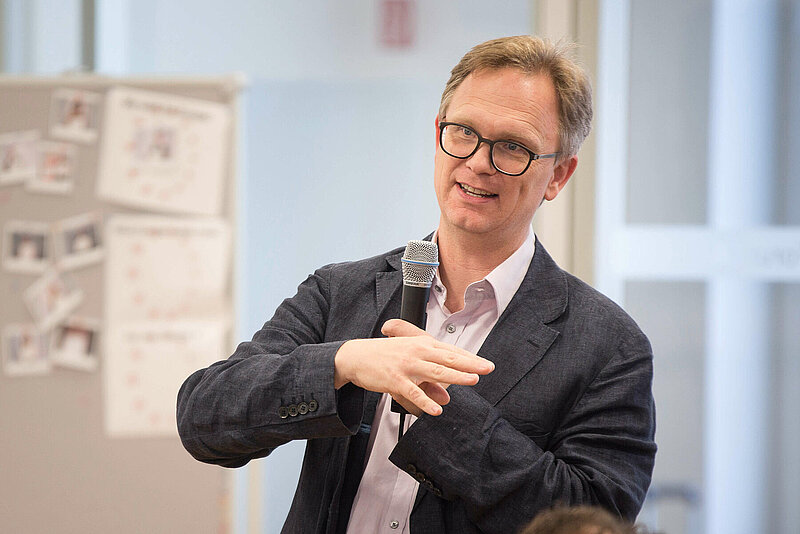
Mark Hallerberg on the nexus between national politics and the EU elections.
In the run-up to the 2019 European Parliament elections, we spoke with experts at the Hertie School about key issues for voters this year. In this instalment, Mark Hallerberg, Dean of Research and Faculty and Professor of Public Management and Political Economy, discusses how national politics intersect with EU politics, the influence of populists and what Brexit will mean for the next EU Parliament.
How are national politics reflected in the elections and what’s at stake for the European project?
At the EU level, the latest projections suggest that the current grand coalition of centre-right and centre-left will lose its current majority and will have to seek other partners. One interesting development, which I don’t think is well-understood, is that the current coalition won’t be able to win a majority of voters at the EU level and also at national level - in Germany's next election, for example. Germany's traditionally centrist parties, too, will have to look for other partners in coming years, probably a coalition involving the liberal Free Democrats or Greens, perhaps together with the Christian Democrats. This is similar at the EU level. The question for all of these centre-right and centre-left parties is: what sort of partners are you seeking? The Greens and the Liberals are both relatively friendly to more Europe, to European initiatives. But there are now also other parties, the more populist parties, which are very clearly against more Europe. They would like to see less Europe at the national level, but it’s unlikely that the two centrist parties in the EU would seek a coalition with those. Nevertheless, the existence now of more “veto players” in the EU will mean more parties that can restrain parliamentary agendas going into the next session..
What impact are populists having on the elections?
The populists tend to be much more sceptical about the role of Europe and want it pared back. One big difference, however, between the populists of 2014 and the populists of 2019, is that in some countries the populists were actually much more vocal five years ago about their country leaving the European Union, or at least leaving the euro. Today, probably because of Brexit, even Italian populists say they want to remain in the euro and the EU, although they believe many decisions should be made in Rome rather than in Brussels. The rise of populists around Europe is also affecting the strategies of certain parties at the national and at the European level. For example, should Victor Oban’s party in Hungary remain part of the centre-right Christian Democratic block in the EU? Some people think Hungary is becoming less democratic and that his party should be kicked out of this grouping – which, for example, is where German Chancellor Angela Merkel’s CDU is grouped at the moment. But the political calculation is that those parties are already nervous about losing their majority in coalition with the Social Democrats, so if they kick Orban’s party out he’ll just take up with another group, making it even harder to form a majority at the EU level. Most voters aren’t really paying attention to these kinds of calculations at the moment.
How will Brexit affect the next EU Parliament?
There are certain things that the British emphasise, such as competition policy, so the question is who will take over the role they have played as champions of the free market in the future? Will the flavour and tone change? There are discussions now, for example in Paris and in Berlin, about weakening competition policy, about creating a single major bank in every country - a national champion that runs things. Traditionally, the British would push back against such ideas at the EU level. The Brits would point out that we have a competition policy and a competition commissioner to manage this. Now that voice will be gone. And that was the voice of the British, regardless of whether Labour or Conservatives were in power. At the same time, the British have blocked some integration in certain areas and there will probably be more unity than in the past. We’ve seen this in the negotiations over Brexit, for example. The British themselves seem rather surprised at how united the block was in discussions.
More about Mark Hallerberg
-
Mark Hallerberg, Professor of Public Management and Political Economy
